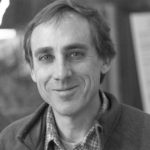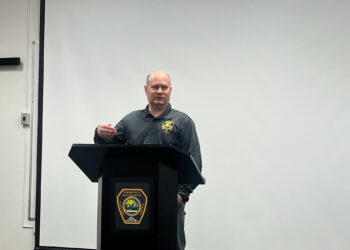
As a baby boomer that came of age during the last half of the 20th century, Don Snow witnessed the rise of the modern environmental era. A thought leader in pondering issues facing the West, Snow was the founding publisher of Northern Lights magazine and today he’s a professor at Whitman College in Washington. Recently, we had a conversation about young people and the conservation movement.
Todd Wilkinson: A criticism leveled at younger generations is that they seem to hold less regard for how 650 million acres of public land, that they own, got protected in the first place.
Don Snow: I have been dealing with those younger generations for 30 years in the college classroom, both at the University of Montana and at Whitman College. They are not the cause of American indifference to history, but they certainly reflect it. If your parents, teachers and mentors don’t emphasize the value of history and the sense of contextualization, which history uniquely brings, then it’s no wonder that you carry the same disease.
The public lands are remarkably easy to take for granted, but if you study their history—the distinct histories of how all four domains of federal lands came into being—you’ll readily see how vulnerable these “given” lands actually are. The public lands are ceaselessly under attack by forces of privatization, incompetence and indifference.
T.W.: Was there more excitement by previous generations in going to work for a government natural resource agency?

T.W.: Politics has hardened tribal identity. Is it reflected on campus?
D.S.: My students today are utterly shocked to learn that the Endangered Species Act, perhaps the strongest of all the federal environmental laws passed in the ‘70s, went through with hardly a dissenting vote. Nixon, a Republican, signed it and the Clean Water Act, too. The etceteras go on and on.
T.W.: So, are generational comparisons exaggerated?
D.S.: I do see some helplessness, and I do hear some tones of despair, but what I mostly hear are questions and pleas for meaningful involvement. I do not agree that so-called millennials are jaded, cynical or disconnected. I think many are rightfully confused, in ways I was not, because so many avenues that were open to my generation now seem either closed or futile. I push back pretty hard.
T.W.: Academia, especially urban universities, pay a lot of attention to environmental social justice issues, but what about concern for other species?
D.S.: It’s true—there is generally less interest and enthusiasm for wildlands conservation, per se. In fact, students today are being taught to sneer at it. There’s a potent literature out there which depicts the original wildlands conservation movement as privileged, white, racist, nativist, and four or five other “ists” we’ve been taught to despise.
When the emphasis is placed only on the human side of the wildlands conservation argument, it’s very easy to—as we like to say in academia—“problematize” most conservation histories and strategies. But this is what I tell students: I quote an old Grace Slick line from a Jefferson Airplane classic, which essentially says it doesn’t mean jack to a tree.
T.W.: And the translation is?
D.S.: Pay more attention to the non-human side of the wildlands conservation argument. The lands—and waters—themselves; the wildlife and plant life, fungi, soil ecologies. In a word, habitat.
Wildlands conservation efforts, from the 19th century until today, have tried to be responsible for what David Abram calls the more-than-human world. That attention to the non-human doesn’t excuse or forgive insensitivity to people, but noticing its deeper implications can really help restore some contemporary faith in wildlands protection.
The center of the target happens to be the original center of the conservation-environmental movement in the first place: human concern for the non-human world, in the face of exploding human populations, technologies, economies, cities, footprints. It doesn’t make you a misanthrope to say so.
T.W.: If a Whitman student says, “I don’t care about the survival of a grizzly bear. I want another trail to mountain bike on?” What do you suggest they consider?
D.S.: Restoring faith and interest in quietude, contemplation, solitude, natural beauty, respect toward beings outside of ourselves.
Aldo Leopold said, in reference to species extinction, “For one creature to mourn the passing of another is a new thing under the sun.” He penned that line en route to his articulation of a land ethic in “A Sand County Almanac.” I consider it to be one of the most radical and profound lines in the book.
What is not a new thing under the sun is the gluttonous feeding of the human ego. Wild places were not set “apart” for the mere purposes of human pleasure and self-gratification. The Bob Marshall Wilderness Area should not be renamed Fun Hog High Speed Wheeled Machine Place. It’s true that things change over time. It’s not true that all change is for the better.
Todd Wilkinson, founder of Mountain Journal (mountainjournal.org), is author of “Grizzlies of Pilgrim Creek” about famous Greater Yellowstone grizzly bear 399 featuring 150 photographs by Tom Mangelsen, available only at mangelsen.com/grizzly.











